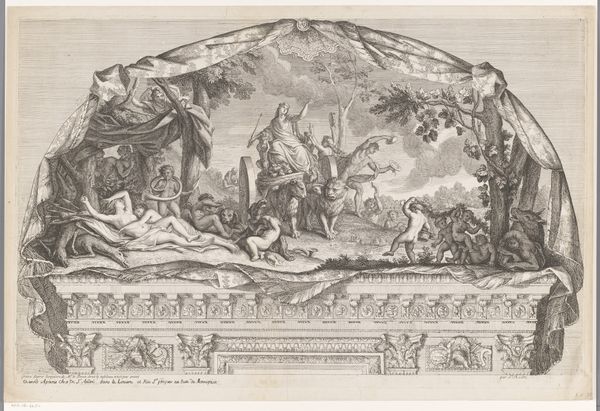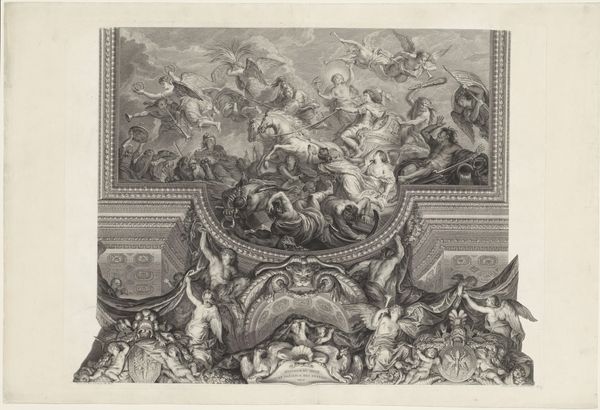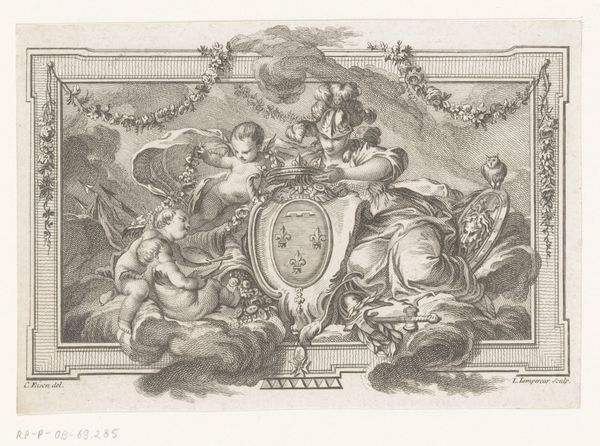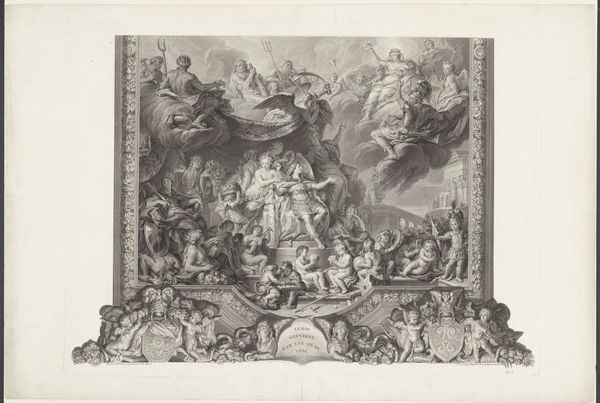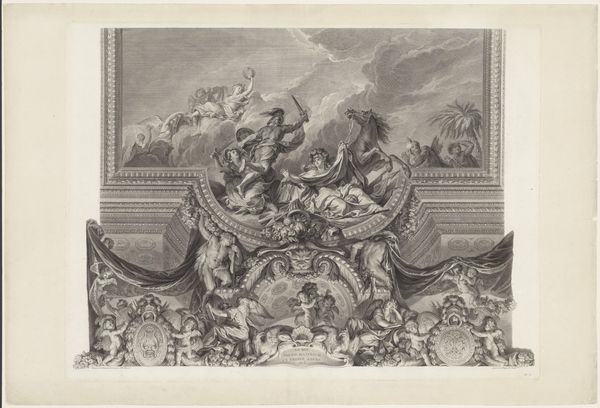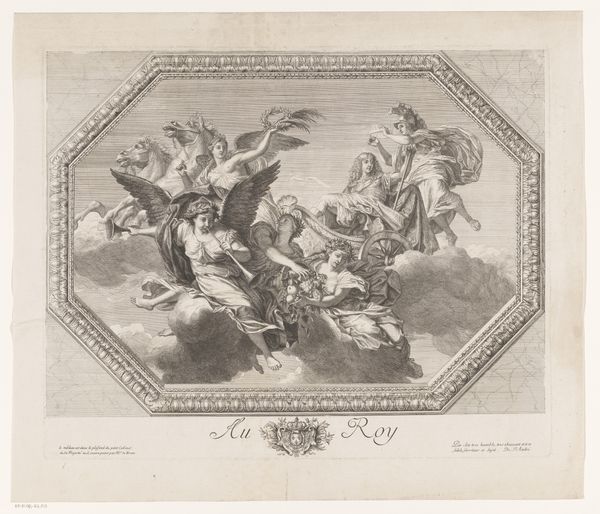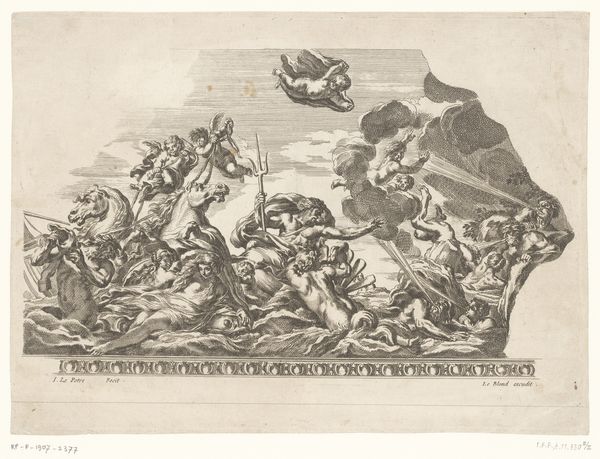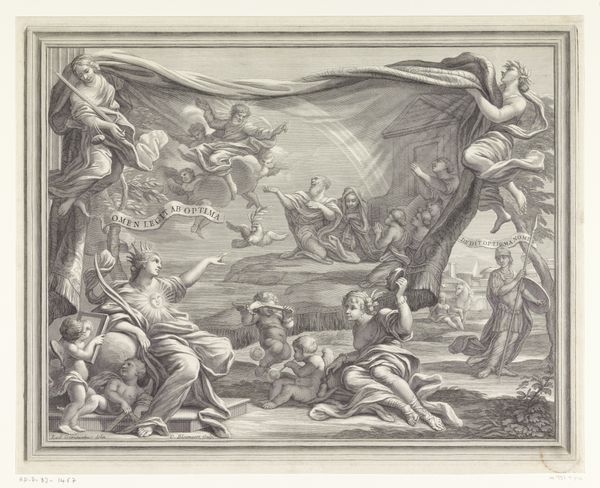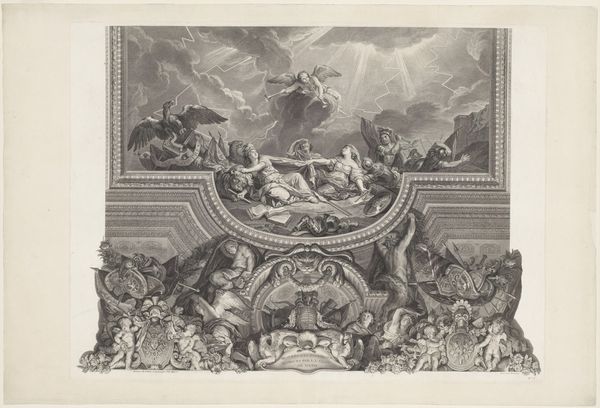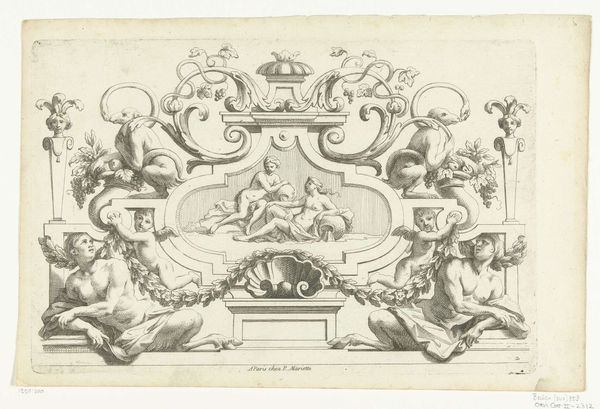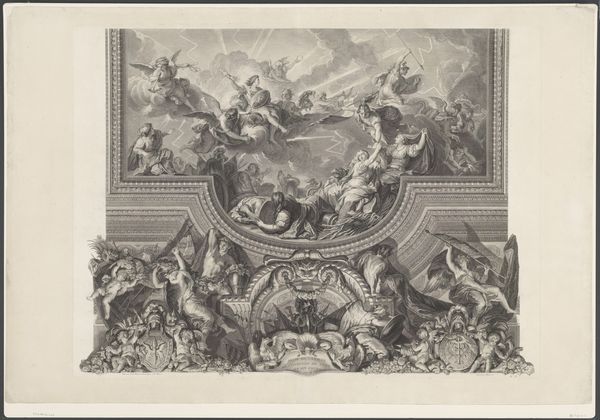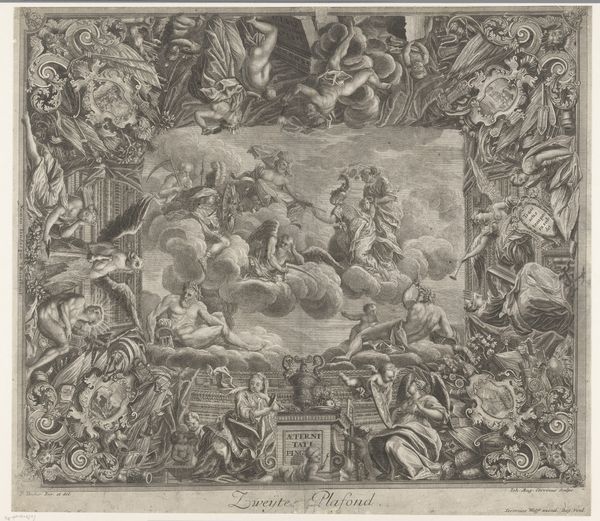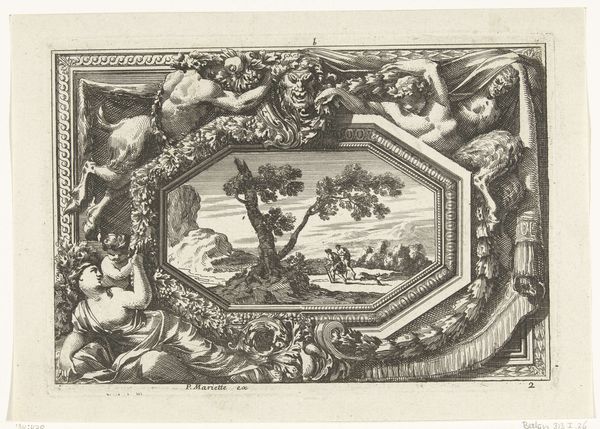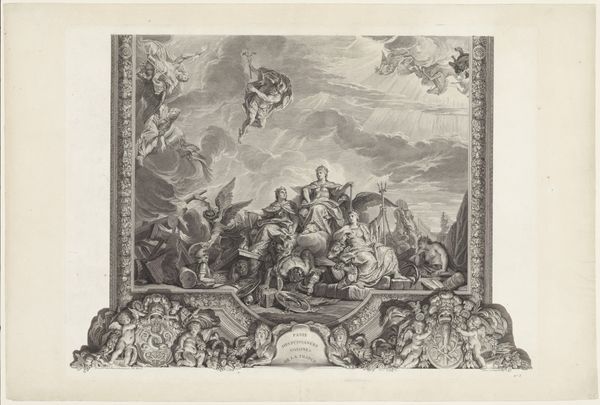
print, engraving
#
allegory
#
baroque
#
neoclassicism
# print
#
pen sketch
#
figuration
#
line
#
history-painting
#
engraving
Dimensions: height 502 mm, width 774 mm
Copyright: Rijks Museum: Open Domain
Curator: Let’s spend some time with this engraving by Augustin Jacques Renard de Saint-André, made around 1695. It's called *Triomf van Neptunus en Amphitrite*, depicting the Roman gods Neptune and Amphitrite in a grand, Baroque style. Editor: My first impression is that this feels like a theatrical performance. It’s all so dramatic, with the sweeping drapery and chaotic swirl of figures! Like the opening act of a marine opera, maybe composed by Handel? Curator: That's a fascinating observation! We see these elaborate scenes precisely within those contexts. These images often circulated in books, or standalone for decorative use in elite circles. Think about the audiences this imagery catered to—European society was changing significantly. Editor: Exactly! So this print almost feels like a snapshot of its time, capturing the excess and spectacle of a society on the brink of transformation, right? Look at all those little cherubic faces, they add a very charming layer to such an epic scenario! Curator: You’ve nailed it. These allegorical displays of power speak to absolutist monarchies asserting dominance through the language of classical antiquity. But there's more! The visual display and rhetoric speaks also to emerging imperialist projects. Think of navigation, exploration and trade... This image does that very well. Editor: That context does amplify it so! It's not just pretty pictures, after all; it is propaganda using accessible stories to build power. Looking at it now with this context makes it feel... well... kinda shady to be honest. Curator: It is not so hard to get disillusioned is it? But let’s recognize its sophisticated deployment of symbolism that weaves power dynamics, mythology and societal narratives so artfully. Even when it’s somewhat insidious. Editor: So well said! What starts out as dramatic pageantry then becomes a complex symbol of European history—it makes you question everything in a good way. Curator: Exactly! Which hopefully makes us think even more broadly, and critically, about everything we think we know about that world and how it echoes still in our own time!
Comments
No comments
Be the first to comment and join the conversation on the ultimate creative platform.
